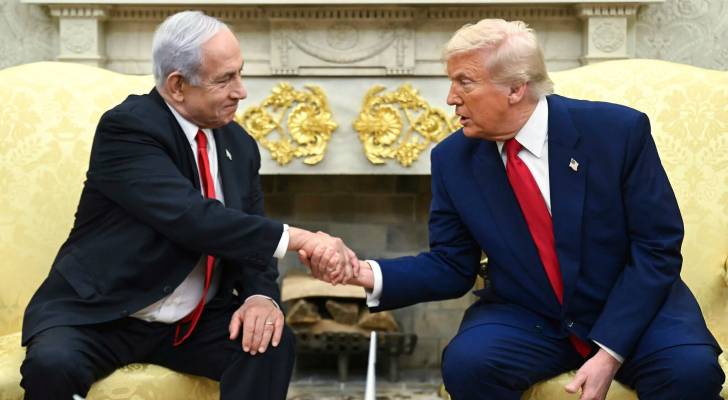Are We Moving Toward a Post-Magic Era? - By Hazem Saghieh, Asharq Al-Awsat
The apprehension of many, myself included, about the inflated stature that Netanyahu’s Israel will enjoy in the region following recent regional developments is well founded, especially since every country in the Levant has either collapsed or been shattered. Still, it would be misguided and difficult not to recognize the massive shifts that have occurred and the opportunities that, after having been out of reach, are now available to us.
This is not a mundane development, especially when seen through the lens of the region’s history and traditions. Before divination, fortune-telling, and astrology receded, the modern era, particularly through Gamal Abdel Nasser, provided us with magical energy that cannot be taken lightly: it could claim victory after defeat, and it could pull back but prevail and radiate. When they were allied with Abd al-Karim Qasim, Iraq’s communists did not hesitate to claim they had seen an image of his face on the moon, while Baathists saw the kinds of virtues that primitive societies had attributed to their gods in Saddam Hussein and Hafez al-Assad.
For the past four decades, we have been compelled to lead enchanted lives, or to pretend that we had been enchanted to be accepted as "patriotic" and "normal." This enchantment, after having been reinforced by aggravating sectarian fanaticism and rising mystical consciousness, the collapse of education, and certain charismatic leaders’ success in frying their followers’ brains, has had an array of repercussions, the most consequential of which is the image it gave us of ourselves and of the world.
We ascribed mythical powers to ourselves, and it came to be said that “The era of defeats is over,” a famous catchphrase of Hassan Nasrallah’s. Rather than developing our critical faculties and sharpening our awareness of our shortcomings and limitations, we became “the noblest of peoples,” while the “enemy” was made out to be “weaker than a spider’s web.” In turn, epics and rigid binaries of absolute good and evil were made into the matter of politics and a means for making sense of it. That is how “Death to...” slogans became something akin to an anthem of a tireless collective voice. As for our enmity with “the enemy”, it was presented as inevitable- destined to endure until one of us annihilates the other. Meanwhile, the region’s skies came to brim with demons and devils, both big and small.
The optimal means for administering this dose of magic, and the best strategy for clearing its use, was the denial of what reality and our senses would tell us. Through this approach, every defeat became victory and every victory became defeat; culture became “a culture of resistance,” which produces neither literature nor ideas, art, theatre, or music, while freedom and progress were associated with the worship of a supreme and infallible totem. With death portrayed as a path to absolute bliss, our wretched present was idealized: the mere existence of resistance in this present was, in and of itself, proof of its superiority to every past. The implicit logic of this calculus was that resistance sufficed to totally eliminate the need for a stronger economy, greater stability, better education, or more freedom.
Moreover, a witch hunt was launched against anyone immune to enchantment; with accusations of treason, collusion, and the like pointed at anyone who preferred to draw his own conclusions by reasoning about the facts. After all, “patriotic” magic, to give just a couple of examples, calls on us to say that the October 7 attack would liberate Palestine and that the Houthis’ weapons would “bring Israel and America to their knees.” That is how lying, both in the straightforward and ideological sense, became the rule, and an acceptable patriot became someone who insisted that 1 + 1 = 5, while slander chased anyone who stubbornly insisted that 1 + 1 = 2.
And because magic typically needs spectacle and theatrics, crowds were brought to public squares to affirm and amplify it. To heighten its affectual impact, physical unison was choreographed in mass rallies where all raise their fists in perfectly synchronized motions and chant slogans with one voice. All of that allows the supernatural to overwhelm reality, as well as allowing human action to become another unstoppable force of nature- this is the stuff of miracles. We know that Nazi Germany excelled at aesthetics and spectacle, whether through architecture, which Albert Speer devoted himself to, or through film and photography, as with the works of Leni Riefenstahl, in which “faith” and “will” always triumph. Joseph Goebbels, for his part, was deeply invested in “showcasing Germany’s muscular strength to the world” to simultaneously enchant and perturb.
The German philosopher and critic Walter Benjamin, who coined the phrase “the aestheticization of politics,” believed that what fascism does is replace achievements with images and substance with form, offering the people a false sense of empowerment to compensate for their erasure in the face of the dictator, his party, and his security apparatus.
Because magic raises the expectations of the enchanted to mythical heights, their inevitable fall to reality becomes excruciating. This is, sadly, part of what we are seeing today.
We would do well, under these circumstances, to break free of this spell that does break with the mere demise of the sorcerers. We must begin to believe facts and reject falsehoods, turning our attention to what lies behind images, thunderous speeches, stimulating slogans, and wagging index fingers. It is only by sweeping this magic away that we can reclaim reason and, with it, freedom. The sooner we do so, the better.
Latest News
-
 Jordanian authorities arrest 23 suspects in deadly methanol poisoning case
Jordanian authorities arrest 23 suspects in deadly methanol poisoning case
-
 Over 14 million people could die from US foreign aid cuts — study
Over 14 million people could die from US foreign aid cuts — study
-
 Trump signs executive order lifting Syria sanctions
Trump signs executive order lifting Syria sanctions
-
 Syria welcomes Trump’s lifting of sanctions as ‘turning point’ toward recovery
Syria welcomes Trump’s lifting of sanctions as ‘turning point’ toward recovery
-
 Netanyahu to visit Trump at White House on July 7
Netanyahu to visit Trump at White House on July 7